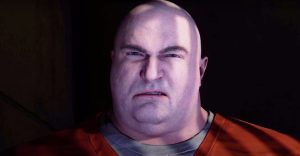12 Fictional Movies With Very Real Ideological Conflicts

Blockbusters don’t have to be all flash and no substance. It’s certainly possible to tell an entertaining story that also makes us think about serious issues and conflicting arguments. At least within the context of the movie itself.
Some of our favorite nerdy/geeky movies include big ideological conflicts that pit the characters of the story against each other. In this list we’re looking at movies where there are disagreements about serious issues the characters face; where their differing views drive the story as much as any material interest or personal agenda. Almost all of these disagreements might make us think a bit more deeply about our own world too, thereby helping ground the proceedings in reality.
Here are 12 Fictional Movies With Very Real Ideological Conflicts.
12 ENVIRONMENTALISM – AVATAR
When Jake Sully arrived on the exotic world of Pandora, he only had the perspective of a soldier assigned to a science heavy project. The Resource Development Administration and their heavy military assignment considered the Avatar Program a pity project, something for their hippie scientists to busy themselves with. Maybe they could reach a peaceful solution with Pandora’s native sentients — the Na’vi — but the RDA is fully prepared to kick them off their land and drill away.
It’s mentioned only sporadically in the movie, but we do learn that Earth has been completely depleted of resources by 2154. Humans are still recklessly collecting resources, except this time it’s somebody else’s home they’re bulldozing. When Jake gets hooked on his abled avatar body and gets to know the Na’vi, he can’t stand idly by while their homes and world are destroyed.
Not only is Pandora majestic and beautiful to preserve, but it sustains the Na’vi because they are so biologically interconnected. But only when it is undisturbed. Avatar never suggests this outright, but perhaps humans wouldn’t need to plunder alien worlds for resources if they had dedicated themselves to finding sustainable ways of living off their own world.
11 INDIVIDUALITY – DIVERGENT SERIES
Set in a future dystopian Chicago, society in Divergent has divided itself into 5 separate factions based on character traits. Each of the factions, Abnegation, Candor, Amity, Erudite and Dauntless have rigid guidelines for their members’ behavior and a clearly defined role in the overall society. Beatrice Prior appears to be an average soon to be 16 year old Abnegation girl. She takes her faction aptitude test like all the other 16 year olds before the Choosing Ceremony. She gets quite a shock when her proctor reveals in conspiratorial whispers that the results of her test indicate Tris is Divergent, exhibiting traits of multiple factions and not fitting completely into any of them.
To avoid being hunted or exiled, Tris decides to join the Dauntless faction, where she has to play along. She hides successfully until she discovers that the elite Erudites are planning to brainwash the Dauntless into executing the entire Abnegation faction, including her parents. While so many others in her society suffered because they had been shoehorned into a label, Tris and her allies were able to stop the Erudite plot because their Divergence let them break the society’s means of manipulating them. Lumping everybody into exclusive groups may give people a sense of belonging and purpose, but those groups can easily be abused or pitted against each other.
10 GOVERNMENT SURVEILLANCE – ENEMY OF THE STATE
Certainly one of the most prophetic blockbusters about this particular issue, in Tony Scott and Jerry Bruckheimer’s Enemy of the State (1998), the United States Congress is pushing a bill that will dramatically increase the domestic surveillance power of the NSA. Jon Voight’s NSA official goes so far as to murder a congressman who’s leading the opposition to the bill. An average wildlife photographer inadvertently captures footage of the assassination and it ends up in the hands of innocent bystander Will Smith. When the NSA comes after him in earnest and tries to frame him to cover up the body count, Smith tries to expose them.
Not only do we see how this constant surveillance and information gathering is invasive, we see how it can be exploited for personal agendas by both Voight and Smith’s characters. As technology advances faster and faster, just as Voight describes, threats become more unpredictable. But how clandestine and above the law can we accept our government being for the sake of security? Perhaps there’s a real life balance between the two concerns, but the characters in Enemy of the State tend to be almost completely on one side of this issue or the other.
9 FREE WILL – THE MATRIX
The Matrix is dense with philosophical quandaries, but the biggest one underlying them all is the question of free will. What is free will and how is it valuable? The machines that have enslaved humanity in the matrix represent the idea that free will is an illusion, while the resistance fights to free humanity from the matrix, thereby realizing their free will.
In the original Matrix, Neo is confronted with the reality that the entire world as he knew it had no free will at all, that he was merely a battery powering a simulation from which he could not escape. When he does escape the matrix, he has to free his mind and choose to accept the new possibilities available to him. Other characters deal with other questions about free will. Cipher embodies the question of whether or not making your own choices will lead to being happy. He’s prepared to accept an artificial world if it means forgetting the unpleasantness of the real world.
The Matrix‘s sequels may have disappointed, but there was at least one pretty profound question at the end of The Matrix Reloaded. Is there such a thing as free will when there will always be external factors or internal values that practically dictate what choices we will make? Could Neo have made any other choice than to save Trinity? The Matrix doesn’t necessarily offer a definite answer, but the characters all make meaningful choices when they face daunting opponents like thousands of sentinels or the villainous Agent Smith.
8 VIGILANTISM – BATMAN V SUPERMAN
How can you trust a godlike alien to use his powers only to protect Earth and humanity? How can you trust a masked clandestine billionaire to dispense justice all on his own, especially when he’s doing so in such a violent way? That’s essentially the problems Superman and Batman have with each other in Batman V Superman. After the Kryptonians’ fight on Earth in Man of Steel, the denizens of Earth who don’t approve of Superman have all kinds of reactions.
Senator Finch wants to hold Superman accountable for his actions. Lex Luther and Bruce Wayne both feel that Superman’s presence on our planet is a threat, though it’s Lex that actually provokes Bruce into believing that the Last Son of Krypton is so dangerous that he absolutely must kill him.
What gives Superman the authority to protect humanity? What gives Batman his authority to protect Gotham? Who are they answerable to if they fail or abuse their power? Fans are still debating how well Batman V Superman follows through on those questions, but by the end of the film, the metahumans seem to agree that they can better protect everyone together rather than alone.
7 FANTASTIC RACISM – HARRY POTTER
We get our first taste of the fantastic racism in Harry Potter in Chamber of Secrets when Malfoy calls Hermione a mudblood with his full derogatory venom. In the very same movie we see how the historical roots of this prejudice threaten students at Hogwarts in the present day. Salazar Slytherin, the founder of House Slytherin and Lord Voldemort’s ancestor, disagreed with the other Hogwarts founders so strongly about letting muggle-born wizards attend Hogwarts that he left the school. But not before building a secret chamber containing a giant basilisk that only his descendants could unleash upon future impure students.
This prejudice crops up throughout the rest of the movies and is one of the main motivations of Voldemort’s supporters, the Death Eaters. Discrimination against muggle-borns even becomes the policy of Voldemort’s regime in the Ministry of Magic in Deathly Hallows. The books go into much more detail about prejudice’s decline, as all manner of magical people and creatures unite to beat Voldemort.
6 THE PROPER USE OF POWER – STAR WARS
It is the root of the divide between the Jedi and the Sith. Should great knowledge and power be used to protect people and promote peace and democracy, or to rule with an iron fist? The Star Wars expanded universe has explored this theme in a bit more depth, but it still comes up in the movies themselves.
The arc of Anakin Skywalker is all about this conflict. In the prequel trilogy Anakin became obsessed with power to try and protect his loved ones. When he becomes Darth Vader, he still believes that keeping a tight grip on the galaxy is the only way to maintain order. “With our combined strength, we can end this destructive conflict and bring order to the galaxy!”
Yoda’s tutelage represents the flipside of the issue, emphasizing restraint and perspective. “A Jedi uses the Force for knowledge and defense. Never for attack.” Thanks to the fantastic potential of the Force, there will always be those who recklessly channel their anger and those who strive to stay humble and noble. In The Force Awakens, we’re just getting to know a new generation of heroes struggling with the light and the dark between and within themselves.
5 HUMAN NATURE – EQUILIBRIUM
In the totalitarian future city state of Libria, all human emotion is suppressed in every citizen by a mandatory prescription of Prozium II. The governing body, the Tetragrammaton, is convinced that human weakness lead to the devastation of WWIII and the only way for humanity to survive is to suppress human emotion in this stoic society. People who hide artifacts or miss their doses of Prozium are branded as sense offenders. The brutally efficient gun kata clerics hunt down the sense offenders, destroy their contraband and execute them.
Could human nature ever be truly suppressed so that no war or suffering would ever occur? Is that an acceptable sacrifice for peace and stability? Christian Bale goes from one side of this issue to the other when he misses his dose of Prozium and starts becoming emotional over the contraband he’s recovered (seriously, just look at that puppy) and even everyday occurrences that everyone else in this society has become numb to.
Eventually, he joins the Underground resistance and spearheads their plot to overthrow the Tetragrammaton and destroy the Prozium factories. The film of course comes down on the side that human emotion can and should never be totally repressed, but you probably saw that coming.
4 DUE PROCESS – MINORITY REPORT
What if you could see the future? What if you could see crimes that people were going to commit and could stop them? You’d want to stop them right? Of course you would. Why let an innocent person suffer or even die when you have the knowledge and means to prevent these crimes?
That’s the premise and appeal of PreCrime in the Steven Spielberg sci-fi thriller, Minority Report (2002). In Washington, DC in the year 2054, a trio of future divining humans called Precogs have visions of crimes before they happen, which let the district’s PreCrime division prevent all instances of murder from taking place. The would-be perpetrators of these crimes are still punished as if they had committed them. Tom Cruise’s PreCrime Chief is convinced the system is perfect, until the Precogs have a vision of him committing a murder himself.
The film gets into pretty deep questions about the paradoxes of predicting and acting on visions of the future. How can the visions of the Precogs be a true indicator of the future if they never come true because law enforcement prevents the predictions from coming true? Max von Sydow’s Director thinks the benefits of PreCrime outweigh the moral and temporal quandaries. But we the audience are able to see how quickly one’s perspective changes when you’re the one being locked up for a crime you haven’t actually committed.
3 CLASSISM – SNOWPIERCER
Snowpiercer takes place after a cataclysmic climate disaster that brings about a new ice age on Earth. What’s left of humanity is stuck aboard a massive train perpetually circumnavigating the globe, the Snowpiercer. Since resources are so scarce and the train is the only thing keeping this new society alive, the train becomes segregated into a violently enforced caste system. Everyone is conditioned to accept their place.
The passengers towards the front of the train live in luxury with all the amenities and services they could ever want, while most of the passengers towards the tail of the train are cramped, starving and disease-ridden. They have to survive on gooey protein blocks, but sometimes the tailers get a bit cannibalistic when food gets seriously scarce.
By the time the movie takes place, the tailers are putting together clues that the headers’ control is not absolute. After one too many loved ones are abducted for unknown reasons, Captain America Chris Evans’ character leads a revolt, taking control of the train car by car. Only when he gets to the very front does he realize the true depraved extent of the system that keeps the train going. Is such injustice worth the very preservation of humanity?
2 CIVIL RIGHTS – X-MEN
Mutants come from all walks of life and all kinds of backgrounds, but they all have something in common. They’re different, they’re powers are sometimes unknown/unstable, and they could be a danger to everyone around them. We saw this argument in the very first X-Men movie, when Senator Kelly introduced his mutant registration act in Washington DC.
Magneto and Professor Xavier have framed mutants’ two conflicting approaches to dealing with being outcasts throughout the series. Despite the mistrust and persecution mutants have endured, Xavier tries to inspire mutants to work with each other and with the rest of humanity. Magneto sees mutants as not only wronged by, but superior to humanity. They have to safeguard their own future by any means necessary.
We see another personal divide on this issue in X-Men First Class. Hank McCoy is developing a cure for his mutation because he believes that he has to appear more like non-mutants. Mystique grows to the point where she refuses to hide what she looks like, and urges Hank not to use the “cure” on himself. But it is a difficult question. How much should the mutants be willing to change and adapt to be accepted by the rest of humanity? How much change is too much?
1 THIRD PARTY OVERSIGHT – CAPTAIN AMERICA: CIVIL WAR
In 8 years, the heroes of the Marvel Cinematic Universe have managed to save the world on several occasions. But even their best hasn’t been enough to prevent considerable loss of life. Sometimes, the Avengers have made (read: Ultron) or inspired (read: Loki) their worst enemies themselves. By the time Captain America: Civil War rolls around, the world is no longer willing to tolerate the Avengers operating completely unsupervised.
The Sokovia Accords proposed by the United Nations drives a wedge deeper into a disagreement that Tony Stark and Steve Rogers have had before. Especially after Ultron and with recent home-hitting reveals about the collateral damage of his work, Tony is ready to accept a third party overseer. On the other hand, Steve foresees all kinds of red tape and politics getting in the way of the Avengers missions, like it did with S.H.I.E.L.D., though he of course has a more personal stake in the matter as well.
The movie shows us that Bucky is being manipulated, even if Ironman and the pro-registration side aren’t willing to trust him or Captain America on that. However, we still hear compelling points both for and against the Sokovia Accords and on the issue of accountability. And even with the specific context of the plot, we’re still not entirely sure which side is correct here.
—
Were there any other blockbusters you saw where the characters had a major political or philosophical disagreements? Let us know in the comments!

















